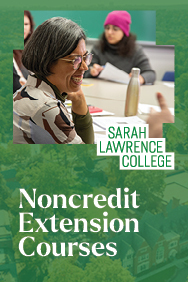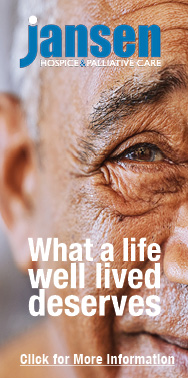Nancy Gibbs of 'Time' Magazine, David Westin of Bloomberg, and Rev. Dr. Dale Irvin Address Issues of Faith and Politics at Reformed Church Colloquium

By Ellen Edwards, Former Executive Editor of Penquim, Random House
Sep. 21, 2016: The intersection of faith and politics was the focus of a thought-provoking discussion led by a panel of distinguished speakers at The Reformed Church of Bronxville on Sunday afternoon, September 18. The Reverend Dr. Dale Irvin, president of New York Theological Seminary, was joined by David Westin, anchor of Bloomberg's morning television show
Moderator Tom Phillips, a member of the church, began by asking, "Was Jesus political?" Dale Irvin pointed out that Jesus was executed for political treason because he put forth the radical notion that God, not the leader of the Roman Empire, was the ultimate power.
Nancy Gibbs called the Founding Fathers' notion of the separation of church and state "one of the most revolutionary ideas in all of human history," an idea that continues to exert enormous influence as we struggle to answer the question "should faith control public life or merely shape it?"
David Westin suggested that the role of faith in the political realm is one of the most exquisite and difficult issues of the church today. Some churches avoid political discussions, while others tell their parishioners how to vote.
Westin believes that the separation of church and state is intended to protect the church and that faith gives us a strong view of how the world should work. He wonders if in our focus on such hot-button topics as abortion and same-sex marriage, we may have failed to address issues more fundamental to Jesus's teaching, such as those having to do with economic inequality. But he's also aware that fighting for social justice can sap all the time and energy of a church body. And if we confront the "radioactive" social issues, will we end up dividing our community of faith?
Irvin reminded the audience that the apostles were never of one mind on difficult questions, even during Jesus's lifetime. A consensus is never possible, he believes, and there should be room for multiple viewpoints on a variety of issues.
Gibbs shared that her study of Billy Graham led her to appreciate the shift he took in his ministry as he grew older—from boasting that he could deliver millions of votes for the Republican party in the 1960s toward a growing humility and refusal to engage in sensitive social issues as he began to see that there were many possible paths to the truth. She sees a big difference between an attitude of "I am here to convince you of my righteousness" and "I am here to engage you with these questions."
An audience member expressed a concern that many people hear only one viewpoint in the media and are not able to make informed choices. Irvin encourages us to tap into all the ways in which political discussion is generated. He has witnessed the enormous anger within African-American communities in response to the way President Obama has been treated, in Trump's questioning of his birth origins, and in attempts to delegitimize his presidency. Yet Obama's portrait hangs in every office of every African-American pastor that Irwin has met—sending a very different message.

Through conversations with his sister, who is an evangelical Christian, Westin has come to realize that many of us in Bronxville are not hearing the evangelical point of view. We may think they're wrong, but we need to try to understand their perspective. Whenever he interviews someone, whoever the person is, Westin seeks to respect his or her legitimate point of view and seek understanding.
Westin believes that in the beginning of Donald Trump's presidential campaign, the media didn't take his candidacy seriously. By the time they realized he could be a real contender, it was almost too late. Now, the more the media criticizes him, the more Trump's team says it's proof that he's right.
For Gibbs, it's been a scary campaign. From the minute Trump started, the media predicted his demise. But as he made one outrageous statement after another and suffered no political ill effects, Gibbs began to see that although his text should have been disqualifying, his subtext had enormous appeal.
Gibbs and Westin pointed out how angry and left behind many voters feel. Westin cautioned against oversimplifying who Trump supporters are, giving an example of well-informed hedge fund managers who strongly endorse Trump.
Gibbs said that many in this population believe it will take an earthquake or a torch to burn down Washington, to produce change. Millions of Americans may not believe what Trump is saying, but they're attracted to his willingness to say it. And no matter who wins, those people will still be here after the election. They are part of a larger story, of which the election is only the beginning, a story that will shape our lives for years to come.
So, asked an audience member, what can we do to foster civilized discourse? Irvin believes we need to hold each other accountable and should explore what it means to place the needs of others ahead of our own. He defines faith as the ability to stay the course even when the finish line can't be seen.
Gibbs asked: What would be the mechanism for a community like this church to explore these issues? Should we be holding seminars? Writing letters to Congress? She quickly imagines such a political focus becoming divisive within the church.
Westin suggests that perhaps there is a middle ground in which we can discuss a subject, present the facts and a point of view, but not tell people what to think about it. For example, should the church help congregants think through a complex issue such as gun control, in light of the fact that thousands of people are dying from gun violence?
Although exposing wrong is essential, Gibbs also seeks to share stories of heroism, generosity, and ingenuity--to shine a light on things worth illuminating. She believes that we can disagree passionately about issues. That's what makes journalism fun and surprising.
Irvin gave a variation of an oft-repeated line: "The arc of the moral universe bends toward justice, but only if love is sitting on it." He hopes we can learn that being of one mind has little value, but being able to love people of different minds is of great value.
Gibbs added that the genius of the American experience is that faith is only meaningful if it's free.
Pictured here: Nancy Gibbs and David Westin.
Adult Education Directory
About the Bronxville Adult School & Contacts
The Bronxville Adult School is a not-for-profit organization incorporated in 1957 and chartered by the New York State Board of Regents. The School "offers all adults of Bronxville and surrounding communities the opportunity for personal growth through life enhancing skills and provides cultural, intellectual and recreational stimulation at a nominal cost."
The Bronxville Adult School
(914) 793-4435
email: This email address is being protected from spambots. You need JavaScript enabled to view it.
www.bronxvilleadultschool.org
Bronxville Public Library
The Bronxville Public Library traces its origins back to 1875, when it was a small lending library housed in a room attached to the “Bronxville Model School.” The Library was officially chartered in 1906 and moved into the Village Hall Building. The needs of the library grew with the town and, in 1942, a new standalone building was erected, which is where the Library is today. Over the years, the Library was renovated and expanded to meet the needs of the community.
The Library has wonderful resources for adults and children and offers a comfortable and relaxing environment. The Library also houses a fine art collection, consisting principally of Bronxville painters and sculptors.
The Library offers special events, art exhibitions, and programs for adults, young adults and children. All events are open to the public, unless otherwise indicated.
The Bronxville Public Library
914-337-7680
201 Pondfield Road (Midland Avenue & Pondfield Road)
http://bronxvillelibrary.org/
Iona University
At Iona, you’ll find bright, curious students eager to achieve for themselves, and for others. We foster both innovative, independent thinking and a deep commitment to community.
Iona’s unique locations offer the best of both worlds. Our New Rochelle and Bronxville campuses provide comfortable, intimate learning environments. At Iona, everyone knows everyone and faculty members and students work closely together.
With New York City less than half an hour away, students have unlimited options for career development and internship opportunities. Not to mention, access to some of the best cultural attractions in the world!
No two Iona journeys are alike. But they all have a few things in common. High-quality academics, outside-the-box thinking and dedication to helping others underscore every Iona experience.
Sarah Lawrence College
Sarah Lawrence is a prestigious, residential, coeducational liberal arts college. Founded in 1926 and consistently ranked among the leading liberal arts colleges in the country,
Sarah Lawrence is known for its pioneering approach to education, rich history of impassioned intellectual and civic engagement, and vibrant, successful alumni. In close proximity to the unparalleled offerings of New York City, our historic campus is home to an inclusive, intellectually curious, and diverse community.
914-337-0700
1 Mead Way
Bronxville, New York 10708














